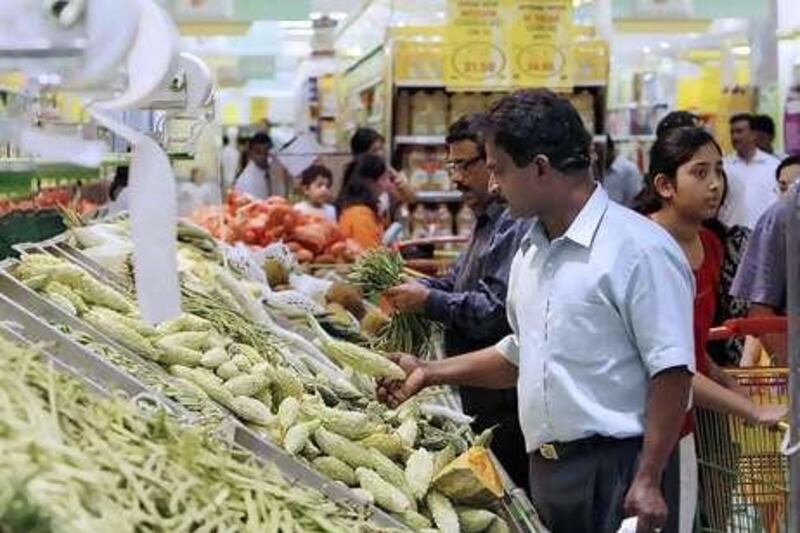The UAE and other Gulf countries are taking a fresh look at increasing food production from home soil, but it will take many years and expensive technologies before the region can reach self-sufficiency in any key crop, analysts say. The region's arid climate is a built-in barrier to expanding domestic food supply. Still, there is room for improvement when it comes to applying new technologies and educating farmers, said Jarmo Kotilaine, the chief economist at NCB Capital, an investment bank based in Riyadh.
"The domestic agriculture sector has not disappeared," he said. "What has actually been going on in the past several years is significant progress in terms of new technologies, new techniques for agriculture, and I think, in general, people have been much smarter about developing agriculture in this region." The UAE imports about 85 per cent of its food at an estimated cost of Dh14.69 billion (US$4bn) a year.
In the 1970s and 1980s, Gulf governments, notably Saudi Arabia's, focused on becoming self-sufficient in key commodities. But the effort was difficult and costly. And in more recent years, regional governments switched their focus to securing farmland abroad in nearby temperate climates. This push for foreign farming gained urgency in 2008 as inflation in food prices surged and the prices of commodities such as rice reached record highs. Plans are being made for the UAE to invest in farmland in Pakistan, Sudan and Cambodia. But the UAE is also trying to turn over a new leaf in domestic farming.
Mohammed al Reyaysa, the Abu Dhabi Food Control Authority's spokesman, said his agency was working to boost agriculture and food security in the Western Region of the emirate by educating farmers about developments in agricultural science and helping them to cultivate the crops best suited to the climate. The authority is working with the Farming Service Centre, a new agency that opened its first branch in the Western Region in April, to increase the proportion of local produce on offer, Mr al Reyaysa said.
"There are many initiatives that are coming under the Food Control Authority to increase the knowledge of farmers, to increase production, increase the quality - everything that will help them to have beautiful product out in the market for us," he said. Mr Kotilaine said the region would never be fully self-sufficient in food because of a lack of arable land and some products, such as wheat, might be too thirsty to thrive in this part of the world. But the available land has not been used to its full potential, he said.
"The reality is the kind of staples that people here favour, you can import those, and you should import those. But that doesn't mean you couldn't profitably produce other kinds of things that are of secondary importance but are part of people's diet." George Atalla, a partner at the consultancy Booz and Company in Cairo, said while there were renewed efforts in domestic agriculture, the limited availability of water in the region would be a continuous hurdle to agricultural expansion.
Reaching sustainability in agriculture on a scale that would have a larger impact is years away, Mr Atalla said. "We are still in the infancy stage," he said. "For this to have any sort of scale, you are looking at tremendous increases in cultivated area and the amount of water that's available. Right now, all of these are really plans and ideas that are under investigation, but we're nowhere close to say [that] through local supply we'll be able to ensure self-sufficiency in any one of the staple products that would constitute your food security basket."
But Qatar and other regional countries are examining the potential of harnessing solar power to desalinate water for agriculture. This, however, is an expensive prospect, he said. And as most commodity prices fell globally last year because of the economic downturn, there has been less of an impetus to invest in these sorts of breakthroughs. But if prices rise again, the drive will return. "Prices nearly tripled in 2008," Mr Atalla said. "Now we've come down, but prices are still almost twice what we were in 2005. So if you get another spike where food becomes yet again more expensive, then it will justify some of the more expensive technologies that are being considered."
aligaya@thenational.ae





